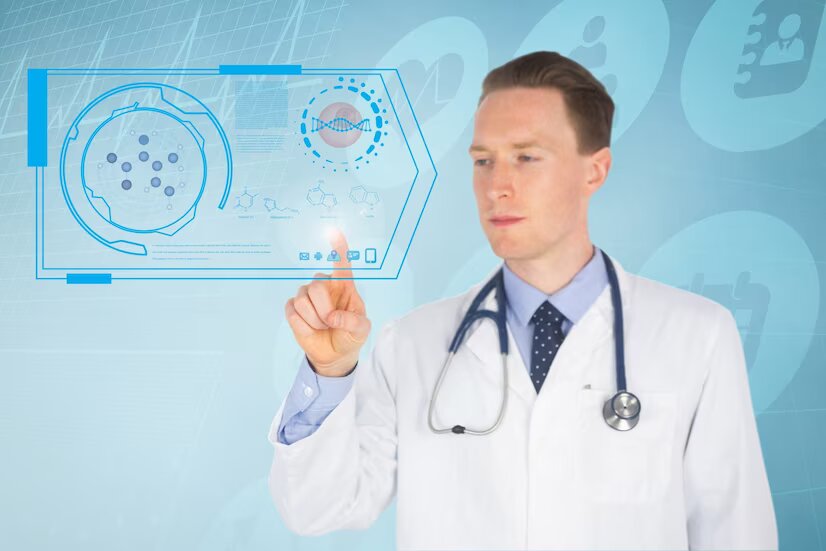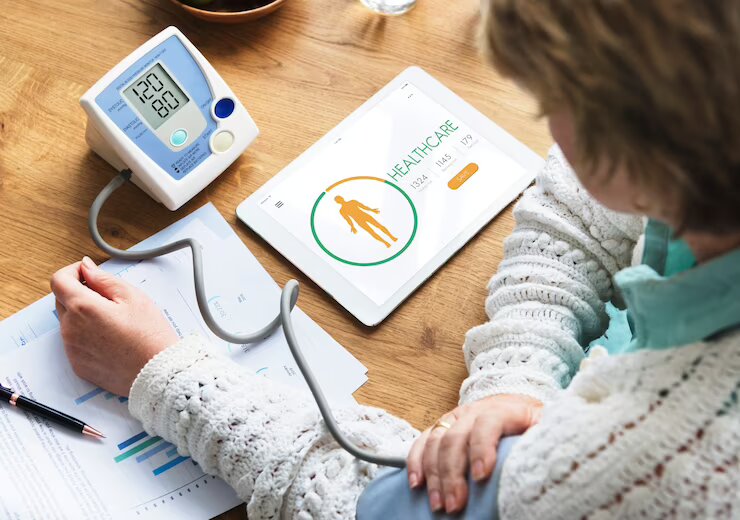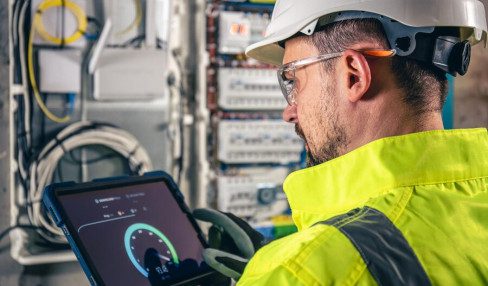Top Benefits Of IoT In Healthcare
4 Mins Read
Published on: 31 March 2023
Last Updated on: 14 November 2024

toc impalement
IoT, an acronym for the Internet of things, has emerged as a significant player in today’s digital world. It enables organizations to operate more effectively with a better understanding of customers’ needs to deliver enhanced customer service.
IoT plays a significant role in the healthcare industry as it has stitched together all the technical aspects of healthcare in recent years. Earlier, a patient could only interact with a doctor by visiting them in person or through telecommunications. The doctors couldn’t monitor the patient’s health continuously.
IoT-enabled devices have enabled doctors to monitor a patient remotely, which was impossible for doctors in the past. Healthcare IoT solutions also enable patients to engage and interact with their doctors significantly.
Let’s get started!
Top Benefits Of Using IoT In Healthcare
A healthy life is one of the most promising blessings anyone wants to experience. That is where IoT technology comes into play as IoT-enabled devices and objects interact over the internet, making monitoring a patient’s situation easy, says expert and CEO of Softermii, Slava Vaniukov.
Here are some of the best benefits of using IoT-enabled devices in the healthcare industry:
1- Provides A Steady Health Monitoring

IoT technology can provide continuous health monitoring reports so that you can take all the precautions necessary to ensure a healthy life.
IoT-enabled devices are like fitness bands and blood pressure measuring bands along with many such advanced smart on fhir healthcare devices that enable patients to know their real-time personalized health status.
These advanced devices effectively remind patients to control their regular calorie consumption tracking, improve their exercise routine, and make other critical health-related suggestions, enabling them to constantly check for leading a healthy life.
IoT-enabled smart devices play a crucial role in the lives of elderly persons by tracking their health conditions regularly. It becomes very challenging for elders to visit their doctors regularly for usual issues like measuring blood pressure.
These smart devices make the life of elderly patients easier by enabling them to know any possible threat in advance without visiting the doctor.
They alert the patient and the family members well in time about any unwanted fluctuations in the patient’s health condition, enabling them to take adequate and timely actions.
2- Improves Patient’s Diagnosis And Treatment
IoT-enabled devices are crucial in effectively improving the patient’s diagnosis of the ailment and treatment options. They make the entire diagnostic process simple and effective and less pain enduring.
Capsule endoscopy is one of the best examples to understand how IoT technology improves the ailment diagnosis process and the treatment options available. The patient with the problem is made to swallow a capsule linked with a miniature camera that takes several pictures of the inner tracts.
The pictures obtained can be easily analyzed by a specialist to diagnose the problem quickly, enabling the doctor to prescribe medicines for the disease for effective treatment.
Thus, patients benefit significantly from IoT technology as it gives them more options for diagnosing internal diseases.
3- Helps In Medical Research
IoT technology can provide significant help in the field of medical research. says this expert dentist in Naples FL. It saves significant time as it has all the required medical condition data that could be used effectively for statistical study.
Thus, IoT technology saves both time and money in the research process, enabling researchers to conduct effective and better medical research that could provide alternative treatment options.
4- Makes Insurance Claims Transparent
IoT devices have effectively managed to design transparency between insurance companies and the patients in all the processes involved in the insurance process, including pricing, claim handling, and other steps involved in the process.
The application of IoT technology in the healthcare sector has efficiently enabled data-driven decisions throughout the operation process. It also allows the customers to have fair visibility into the compulsory process for completing the insurance process.
These IoT devices also enable insurance companies to validate every claim through the data collected by some devices so that no genuine health insurance buyer has to suffer because of the wrongdoing of several other people.
5- Makes Hospital More Advanced
IoT technology has a significant role in making hospitals more advanced as it can effectively monitor their assets. IoT-enabled devices and objects made it feasible for healthcare professionals to be more alert and carefully and proactively engage with patients regularly.
Wheelchairs, nebulizers, and other hospital assets can be tracked quickly and effectively, enabling hospital management to know their real-time locations. It also enables the hospital management to analyze the deployment of medical staff in real-time.
IoT technology can also be used to check the spread of infection within the hospital premises, enabling hospital management to prevent patients from getting infected.
Thus, it can be said that IoT technology is quite beneficial in making hospitals more advanced.
Conclusion
The Internet of Things, or IoT, has undoubtedly been an instrumental player in transforming the healthcare industry. IoT technology has various applications in the healthcare industry that are quite beneficial for doctors, patients, the family members of the patients, hospitals, and even insurance companies.
I hope this article helps you in having a clear understanding of IoT technology and the benefits of its application in the healthcare industry.
Read Also:


















Comments Are Closed For This Article